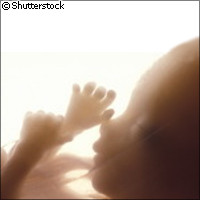Can household chemicals affect your fertility?
There are currently over 100,000 chemicals in use in the EU, which are found in a host of products around the home. These include plastic softeners used in many PVC products, such as children's toys and in some cosmetics, and artificial musks found in air fresheners. To date, our knowledge has been limited on the effect these have on our health and environment. Reproductive Effects of Environmental Chemicals in Females (REEF), a new €2.9 million EU-funded project aims to examine the impact of everyday chemicals on female fertility. The project is one out of three belonging to the newly-started NECTAR cluster (Network for Environmental Chemical Toxicants Affecting Reproduction) with a total EU contribution of €10 million. Dr Paul Fowler is a senior lecturer in reproductive physiology at the University of Aberdeen and co-ordinator of the project. 'For more than 60 years there has been increasing concern over the impact of chemicals in the environment that may interfere with the development of the male and female baby in the womb,' he commented. 'These chemicals are derived from a variety of industrial, commercial and agricultural sources and they have the potential to affect the development of the male and female reproductive system.' Teams from the French National Institute for Agricultural Research (INRA), Nottingham University, the University of Aberdeen and Macaulay Institute in the UK, will study the impact of small amounts of environmental chemicals on sheep foetuses in the womb. These are found in human sewage sludge, which is frequently spread on fields where the livestock graze. These chemicals are absorbed in minute amounts by the animals. As a result their presence can be difficult to notice through normal testing. Eating meat derived from such livestock is just one way that humans might absorb these chemicals, which have serious consequences for their health. These chemicals can bio-accumulate, remaining in our system, mainly in our fat tissue, for a very long time. As a result, they can be passed on during pregnancy. Therefore, REEF research groups from the Martin Luther University in Germany and the University of Milan in Italy will study mouse eggs and embryos exposed to these chemicals in order to begin understanding some of the mechanisms involved. Dr Richard Lea of the School of Veterinary Medicine and Science, one of the researchers brought into REEF, says the research will help fill an important knowledge gap. 'Though male fertility has been the subject of studies in recent years, this will be the first time that female fertility has been examined. Currently, less is known about the effects of hormone-like chemicals on the developing female foetus, so the consequences for reproductive development in females may be greater than in males.' For the next three years, REEF will look at how chemicals are passed from mother to foetus, and how this affects the foetus. Although these chemicals have yet to affect the fertility of animals in this generation, there is mounting evidence that the next and future generations could have problems stemming from exposure to environmental chemicals in the womb. By extension, this could have serious consequences for humans.



